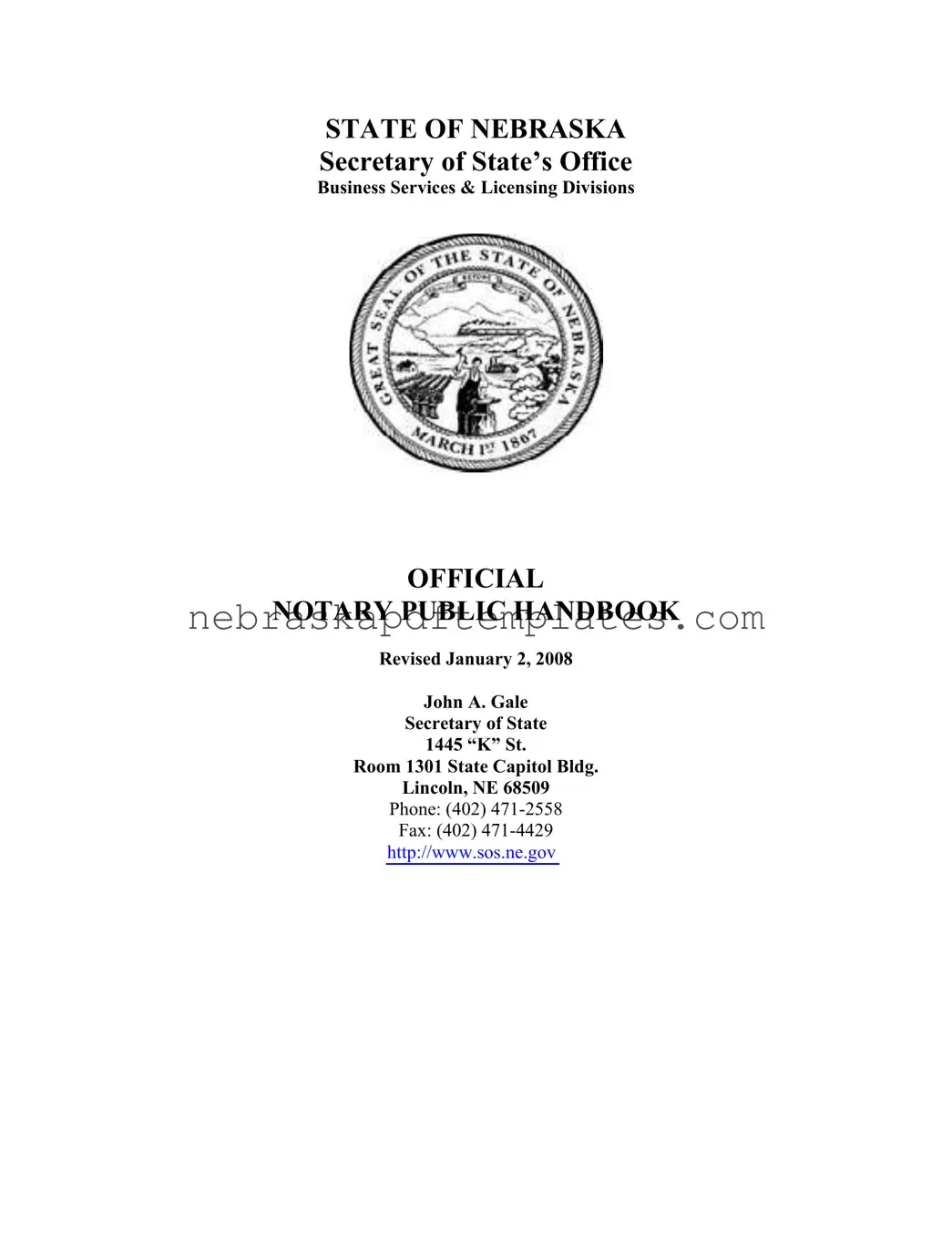Blank Notary Handbook Nebraska PDF Template
The Notary Handbook Nebraska is an essential resource for individuals serving as Notaries Public in the state. This handbook outlines the responsibilities, procedures, and ethical guidelines that govern notarization, ensuring that documents are properly authenticated and reliable. For those looking to understand their duties or to get started, filling out the form is a crucial first step—click the button below to begin.
Access Editor Here

Blank Notary Handbook Nebraska PDF Template
Access Editor Here
Finish your form now
Finalize Notary Handbook Nebraska online — edit, save, and download effortlessly.
Access Editor Here
or
➤ Notary Handbook Nebraska
